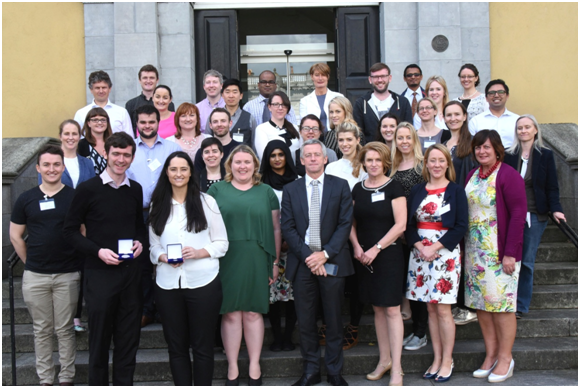
The MacCraith report (2014) into medical training recognised that having junior doctors in leadership positions improved communication between hospital management and junior doctors. However, involving junior doctors in the running and management of our health service brings many benefits besides that.
In 2013 the Irish health service established the lead non-consultant hospital doctor (NCHD) initiative. Lead NCHDs are junior doctors working in acute hospital and mental health settings who hold a leadership position along with their clinical one. The role is varied and involves representing junior doctors on patient safety, quality improvement, staff wellbeing initiatives, and many more issues. What initially started as an initiative organised by the health service is now owned by us, and an example of junior doctors facilitating change within the health service.
Examples of lead NCHD projects include the introduction of the Occasional Act of Kindness initiative into hospitals (which promotes compassion towards colleagues); the launch of an innovation competition, “Neurotransmitter,” which translates staff ideas to improve the health service into action; and the initiation of a leadership academy for junior doctors in their hospitals.
It’s worth noting that our success is dependent on many others and can only happen when support is easily available. Clinical leadership needs to be considered a valuable asset in junior doctors by both senior medical colleagues and management. As we find our way in an area that’s so different from clinical practice, organisations at a local level need to facilitate junior doctors’ participation in management and leadership activities.
We would suggest that management engage with us, agree common areas of interest, and then work with us to realise that change. Invite us to relevant meetings—we are familiar with the reality of clinical life and can often provide useful insights. Teach us—we may not have chaired meetings or recorded minutes before.
Managers need to realise that the value of junior doctors extends far beyond service delivery. At a time when the recruitment and retention of doctors is a challenge, we strongly urge clinical and administrative management to realise that acting on our behalf without asking our opinion does not engage us.
Championing junior doctors’ involvement with the health service and its management will, in our opinion, facilitate greater engagement among doctors. We will surprise you with our enthusiasm and ideas. By encouraging us and offering real, supported opportunities, senior management will improve doctors’ morale and provide us with an invaluable experience of clinical leadership.
Catherine Diskin, national lead NCHD; National Doctors Training and Planning fellow, Health Service Executive; and paediatric specialist registrar, Republic of Ireland.
Anna Mc Hugh, lead NCHD, Letterkenny University Hospital, and GP trainee, Republic of Ireland.
Competing interests: Nothing further to declare.
